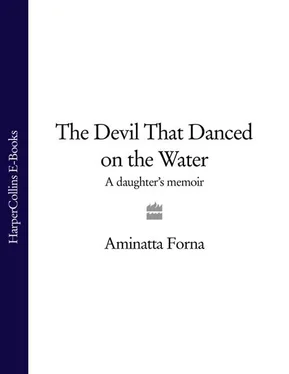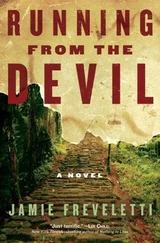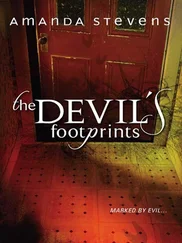The hours passed and when at last his name was called the old Pa seemed to have fallen asleep, so my father leaned over and shook him lightly. The man slumped over sideways and lay face up, blue cataract-filled eyes reflecting the sky. A few minutes later the orderlies pulled him up by the arms and carted him away. They were used to it: the old ones who died before they made it to see the doctor.
Following Ndora’s death our father left the village to live with Teacher Trye. Soon after he left, a second tragedy struck his tiny family. A letter arrived in Bo, written by a hired letter-writer, informing Mohamed that his elder brother Morlai had died ‘of a headache’. He lay down one afternoon saying his head hurt and simply never got to his feet again.
We never, ever turned a patient away. And if someone couldn’t pay, we treated them for free. It was hard to imagine, given the principles that governed our father, that the clinic was making money but remarkably it was.
In the town there were a small number of extremely wealthy diamond dealers. They operated cheek by jowl with the Sierra Leone Selection Trust, who paid the government millions to exploit the country’s reserves, as well as the Diamond Corporation, a holding of the De Beers empire, who held the rights to buy the lion’s share of gems. Some independent dealers bought government permits allowing them to mine restricted quantities of gems. Others dispensed with the law and sent teams of their own men to dig illicitly in the restricted area. Many did both.
After dark on most nights just outside Koidu hordes of young men and some women scaled the fences, easily avoiding the single SLST helicopter that patrolled the area with search lights. In the early morning they wriggled back under the wire, gritty brown diamonds wrapped in small pieces of cloth tied round their necks. The dealers paid their illegal diggers a retainer to bring the gems, which they then sold on through the official government offices or shifted illegally on the black market. The world of the dealers was a closed one, a tightly run business controlled by a few men who maintained a private code of honour designed to hold on to their monopoly and increase the sum of their wealth.
The men who risked their health and liberty to dive hundreds of times to the bottom of the river bed and bring up pans of silt had no option but to sell the gems they found to their patron at the price he chose to give them. There were frequent accidents: several times we were all roused in the middle of the night or early morning because there had been a drowning. Sometimes the illegal diggers were caught and prosecuted – they were the only people who ever were. If their patrons couldn’t bribe the judge to let their man off, well, he’d be well compensated for doing time on behalf of the boss. In Koidu everyone knew their place.
Regularly men would arrive at the clinic bearing notes which simply stated to whom the final bill should be sent – inevitably one of several Lebanese dealers: After my father had treated their ailments and given them drugs, he sent the bill through to my mother to prepare and he instructed her to charge the dealers at the highest rate. At least eight out of every ten people who passed through our clinic paid nothing, even for their medicines, which my father fetched from the dispensary in the house and handed to them; people who could afford it were charged at the regular rate; and between them the diamond dealers paid for the healthcare of the rest of Koidu and the surrounding villages.
Almost always people who had not been charged came back on another day with something in return: a pair of live chickens, a sack of oranges or a basket of yams.
Late one night we were all woken up by a frenzied rapping on the door of the house, so loud it sounded as though they were trying to hammer their way in. When our father undid the bolts, there on the step was a young man, sweating and teetering on the edge of hysteria: ‘Oh, Doctor, I say do ya help me. I get syphilis.’ He babbled in Creole, fidgeting and jumping, utterly unable to contain himself. ‘I able feel am crawling pan me skin.’ He shuddered at that. We all did. ‘I need tchuk .’ He made the motion of giving himself an imaginary injection in the left arm. Our father, still half asleep, led him through to his surgery and treated him then and there. When the young man confessed he had no way of paying, our father waved him away.
A few weeks later my mother was out at night She had been to a dance at the Diamond Corporation, alone because my father was working. On the way home she drove over a pothole and burst a tyre. The road was dark and empty as the DiaCorp compound was some way out of town; dense elephant grass grew up on either side to well over seven foot. She couldn’t see a single light and within a few moments she began to consider her predicament: a woman, in an evening gown and high heels, without a torch on an empty road in the African bush. She had been there some time when she saw a car’s headlights in the distance. Conflicting thoughts occupied her mind and she prayed that this was someone who would help her, perhaps someone else on their way back from the party.
As the car came closer she saw that it was dented and old, obviously belonging to a local because no European would drive a car in such a state. It drew alongside, slowed and stopped next to her. My mother could see that there were several young men inside.
‘Na de doctor een wife,’ someone announced. It was ‘Tchuk’. He jumped out grinning and proud, evidently in the best of health. Within a few moments Tchuk and his companions changed the punctured tyre and saw her away.
By the time we had been in Koidu a year our father’s name and reputation had spread for miles. As with my mother, everywhere he went people greeted us, yelled and waved at the passing car. Yet to me at that time he was a distant figure.
My days were spent in the house, playing with our dogs Jack and Jim, and being guarded by Big Aminatta. I say ‘guarded’ because that is just about what she did: she pursued her many chores around the house, of which I was just one. Her task was to make sure I didn’t escape or run into trouble. She kept me within the confines of the compound by telling me of the devils lurking in the elephant grass beyond the screen of trees that marked the compound boundary. Devils with faces like gargoyles just waiting for the opportunity to feed on a child like me. At night she got me to clean my teeth with stories of cockroaches that crawled onto pillows and feasted on the crumbs left at the side of a sleeper’s mouth.
At that time we had two Old English sheepdogs. With their heavy coats they were hopelessly unsuited to both the humidity and the ticks that burrowed into their flesh, but they seemed to manage all the same. Given to us as puppies in Freetown, they were at first presumed to be mongrels until they grew into apparently full-blooded Old English sheepdogs. My mother called them Jack and Jim and they were the only pedigree dogs I ever saw or have ever seen since in Sierra Leone. I spent my days tumbling with Jack and Jim in the yard and kissing them on the nose, playing in the dirt until I contracted enormous tropical boils, which my father lanced for me from time to time, and generally ingesting enough germs to give me a lifelong immunity to hepatitis. In the evening our father came back long after we were all in bed. He literally worked every hour of the day.
Mornings, when our father went to the bathroom for his early constitutional, was our quality time together. The three of us followed him to the bathroom, carrying our colouring books, toys and stories. We sat on the floor around him, chatted, finished our drawings, showed him the work we had done the day before or persuaded him to read aloud to us. At some point I suppose he sent us on our way. I don’t remember that, only lying on the lino colouring a picture of a princess for him.
Читать дальше












